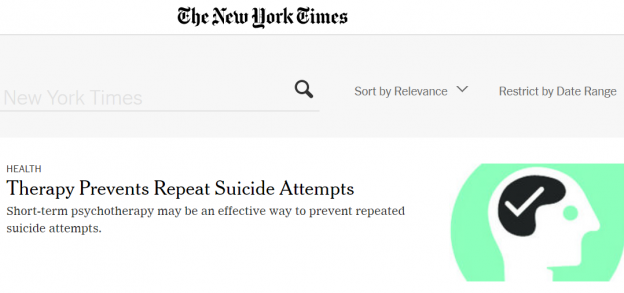Losing a loved one to suicide can be a traumatic and stressful experience, and studies show that bereaved by suicide themselves have an increased risk of stress-related illnesses and suicidal behavior. To determine the burden related to being bereaved, Annette Erlangsen at DRISP is involved in an international research project with researchers from University College London.
The study examined register data on 32,248 individuals living in Denmark who died by suicide in Denmark between 1980 and 2016, as well as identifying their relatives in the form of parents, children, siblings, and partners.
Having lost a loved one to suicide was associated with a 2.8 times higher risk of suicide compared to people who had not lost a loved one. The study also showed that 0.69% of all suicides in Denmark could be prevented if all factors that increase the risk of suicide among relatives of people who have died by suicide could be addressed. This corresponds to 60% of suicides among bereaved by suicide.
Bereaved by suicide have an increased risk of developing suicidal behavior themselves, and, although these suicides only account for a relatively small proportion of the total number of suicides, it is important to provide support to this group.
The project has received funding from the American Foundation for Suicide Prevention. You can find the study here: https://onlinelibrary.wiley.com/doi/10.1111/acps.13493
DRISP: Annette Erlangsen
Partner:
- Dr Alexandra Pitman, Senior Clinical Lecturer, UCL Division of Psychiatry (
projektansvarlig ) - Dr Gemma Lewis, Research Associate in Psychiatric Epidemiology, UCL Division of Psychiatry
- Professor Julie Cerel, Professor, College of Social Work, University of Kentucky



